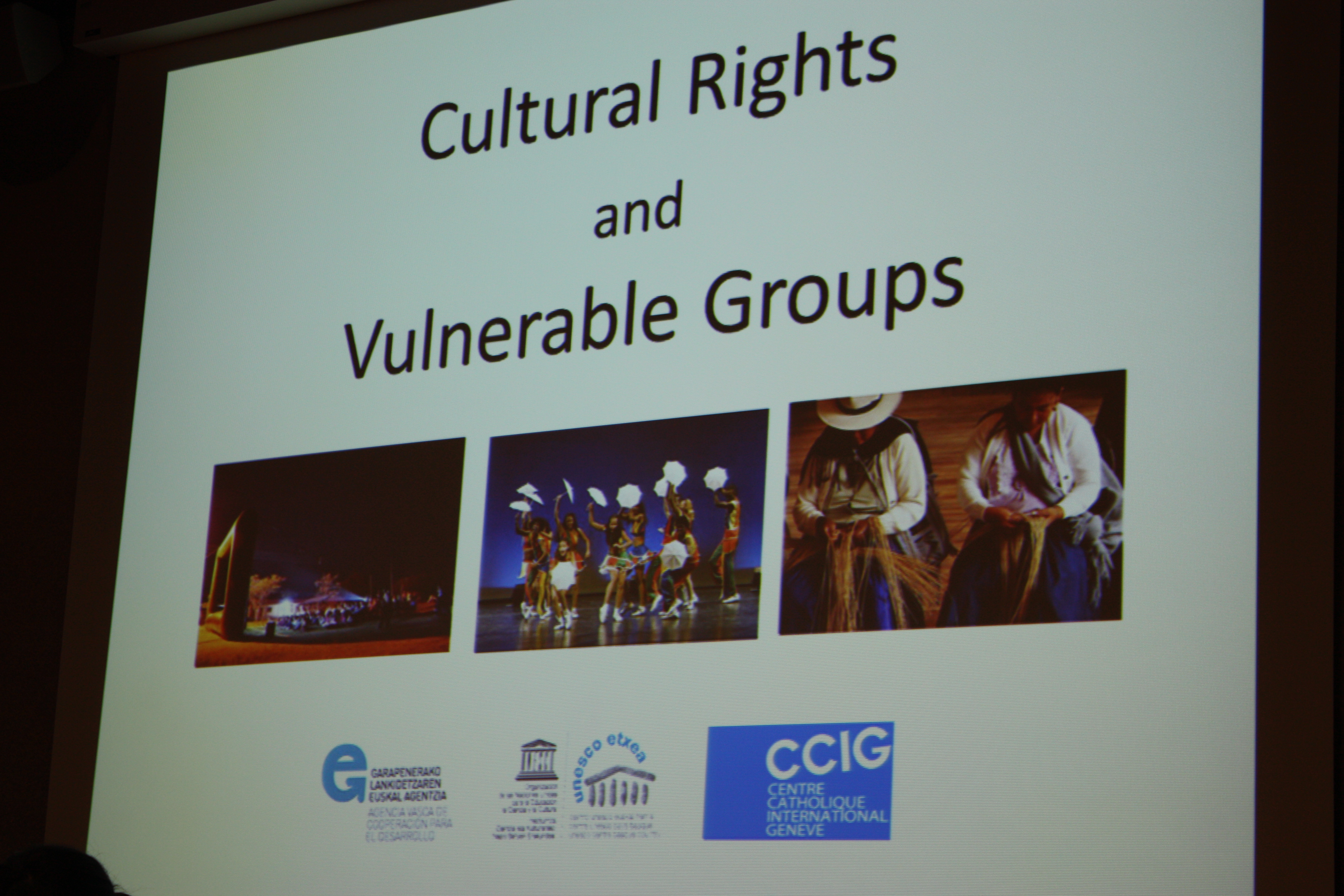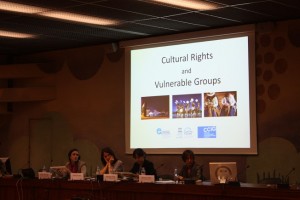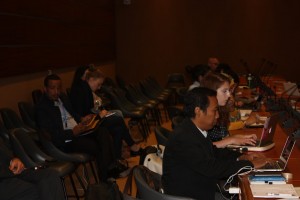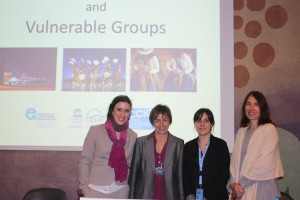
Geneva, Switzerland. On 29 September 2015, in conjunction the 30th Session of the United Nations Human Rights Council, the CCIG together with UNESCO Exeta – Unesco Basque Country Centre organized a side event on
September 2015, in conjunction the 30th Session of the United Nations Human Rights Council, the CCIG together with UNESCO Exeta – Unesco Basque Country Centre organized a side event on
Cultural Rights and Vulnerable Groups. Moderated by Arantza Acha, director of UNESCO Extea, the discussion sought to highlight the importance of cultural diversity and the rights associated with it. The high level panelists addressed relationships between specific vulnerable groups and their cultural rights. Myléne Bidault, assistant to the Sp ecial Rapporteur in the field of cultural rights, Farida Shaeed, addressed the topic of cultural rights and women. Ms. Bidault made clear that cultural rights are empowering rights that enable women to take part in society and, inter alia, to actively engage in identifying and interpreting cultural heritage, and in deciding which cultural traditions, values or practices are to be kept intact, modified or discarded altogether. Gemma Carbó, director of the UNESCO Chair in Cultural Policies and Cooperation focused on cultural rights and youth. Cultural and artistic expressions are strategic to find new ways to promote conviviality and respect for human rights, which are both main goals of educational systems all over the world. The future of cultural rights, Ms. Carbo’ said, lies in the future of cultural education which should target specifically youth.
ecial Rapporteur in the field of cultural rights, Farida Shaeed, addressed the topic of cultural rights and women. Ms. Bidault made clear that cultural rights are empowering rights that enable women to take part in society and, inter alia, to actively engage in identifying and interpreting cultural heritage, and in deciding which cultural traditions, values or practices are to be kept intact, modified or discarded altogether. Gemma Carbó, director of the UNESCO Chair in Cultural Policies and Cooperation focused on cultural rights and youth. Cultural and artistic expressions are strategic to find new ways to promote conviviality and respect for human rights, which are both main goals of educational systems all over the world. The future of cultural rights, Ms. Carbo’ said, lies in the future of cultural education which should target specifically youth.
Finally, Beatriz Barreiro, Professor of Public International Law and International Relations at the Rey Juan Carolos University in Girona, explored the relation between cultural rights and indigenous people. Starting from General Comment on the right to take part in cultural life of the Committee on Economic  Social and Cultural Rights and with references to the World Heritage Sites and Indigenous Rights, Ms. Barreiro explained the more recent UN developments dealing with Cultural Rights which offer important advantages over the more traditional UN Indigenous Peoples Rights instruments. Recalling that cultural rights are too often forgotten and denied, the three speakers pointed out that when cultural rights of particularly vulnerable groups are restricted, not only their cultural identities are put at risk, but also their cultural heritage. Cultural diversity should be used as a tool for empowering women and indigenous peoples and should be regarded as an opportunity to foster democracy and human rights.
Social and Cultural Rights and with references to the World Heritage Sites and Indigenous Rights, Ms. Barreiro explained the more recent UN developments dealing with Cultural Rights which offer important advantages over the more traditional UN Indigenous Peoples Rights instruments. Recalling that cultural rights are too often forgotten and denied, the three speakers pointed out that when cultural rights of particularly vulnerable groups are restricted, not only their cultural identities are put at risk, but also their cultural heritage. Cultural diversity should be used as a tool for empowering women and indigenous peoples and should be regarded as an opportunity to foster democracy and human rights.